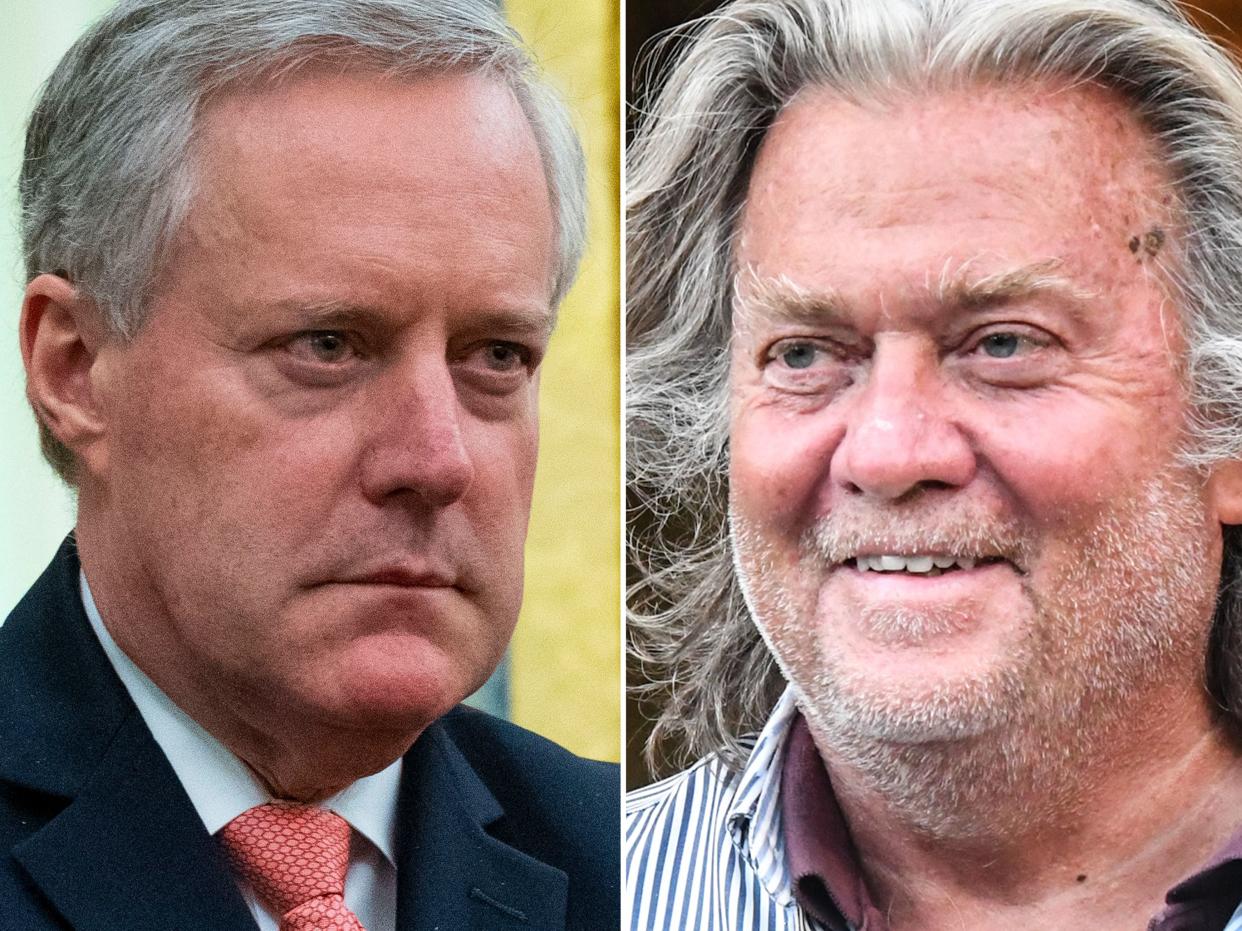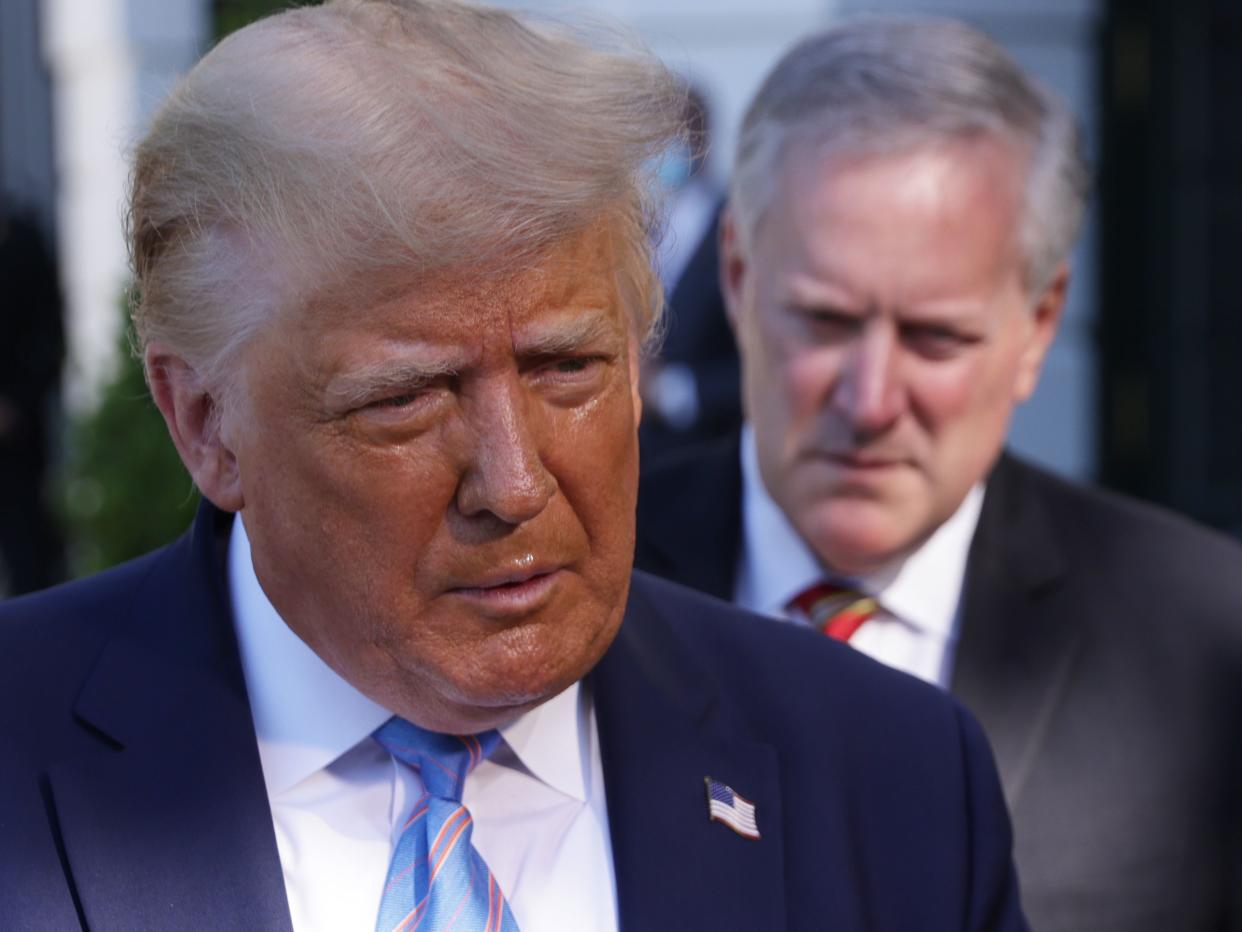Capitol attack commission slaps subpoenas on top Trump aides
The Congressional panel investigating the Jan. 6 storming of the Capitol has issued subpoenas demanding records and testimony from four top aides of former President Trump and those who were in contact with him before the attack or on the day of it.
In a significant escalation for the panel, Committee Chairman Bennie Thompson (D-Miss.) announced the subpoenas of former White House Chief of Staff Mark Meadows, former White House Deputy Chief of Staff for Communications Dan Scavino, former Defense Department official Kashyap Patel and former Trump adviser Steve Bannon.
Thompson warned Meadows that the panel has evidence he played a key role in Trump’s bid to overturn the 2020 election that culminated in the attempted Jan. 6 insurrection.
“You were the president’s chief of staff and have critical information regarding many elements of our inquiry,” Thompson wrote. “It appears you were with or in the vicinity of President Trump on January 6, had communication with the president and others on January 6 regarding events at the Capitol and are a witness regarding the activities of the day.”

The panel, formed over the summer after Republicans blocked the creation of a bipartisan 9/11-style commission, is moving quickly to the interview phase of its investigation after sorting through thousands of pages of documents.
It plans to come up with a complete accounting of the armed attack on the Capitol that took place after Trump urged thousands of his supporters to “fight like hell” to keep him in power. The goal of the attack was to prevent Congress from doing its constitutional duty of certifying Biden’s victory.
In a statement on Friday, Trump asserted that “we will fight the Subpoenas on Executive Privilege” and suggested that the panel should call witnesses to testify about the “Rigged Presidential Election of 2020.” Multiple courts, elections officials and even Trump’s own attorney general have found no evidence of widespread fraud.
Though the former president has signaled his refusal to hand over any details to Congress, he doesn’t necessarily have the final word now that he’s out of office. According to an executive order on presidential records, the archivist in possession of the records “shall abide by any instructions given him by the incumbent President or his designee unless otherwise directed by a final court order.”
The White House has indicated it is inclined to release as many of the documents as possible, but officials aren’t ruling out that there could be individual records Biden may deem privileged.

The letter to Meadows also questioned his efforts to bully Justice Department officials into launching bogus investigations into supposed election fraud, false claims that were at the root of the Jan. 6 attack.
In the letter to Scavino, Thompson said the panel’s records indicate that Scavino was “tweeting messages from the White House” on Jan. 6, suggesting he might know why Trump failed to lift a finger to stop the violent incursion for hours.
The subpoenas are certain to anger Republicans, most of whom want to move on from the insurrection and remain loyal to Trump despite his backing of the attack. Only two Republicans sit on the panel, Rep. Liz Cheney (R-Wyo.) and Rep. Adam Kinzinger (R-Ill.), both staunch critics of Trump.
In July, the committee held an emotional first hearing with four police officers who battled the insurrectionists and were injured and verbally abused as the rioters broke into the building and repeated Trump’s lies about widespread election fraud.
At least nine people who were there died during and after the rioting, including a woman who was shot and killed by police as she tried to break into the House chamber and three other Trump supporters who suffered medical emergencies. Two police officers died by suicide in the days that immediately followed, and a third officer, Capitol Police Officer Brian Sicknick, collapsed and died after engaging with the protesters. A medical examiner later determined he died of natural causes.
The Metropolitan Police announced this summer that two more of their officers who had responded to the insurrection, Officers Kyle DeFreytag and Gunther Hashida, had also died by suicide.
With News Wire Services
